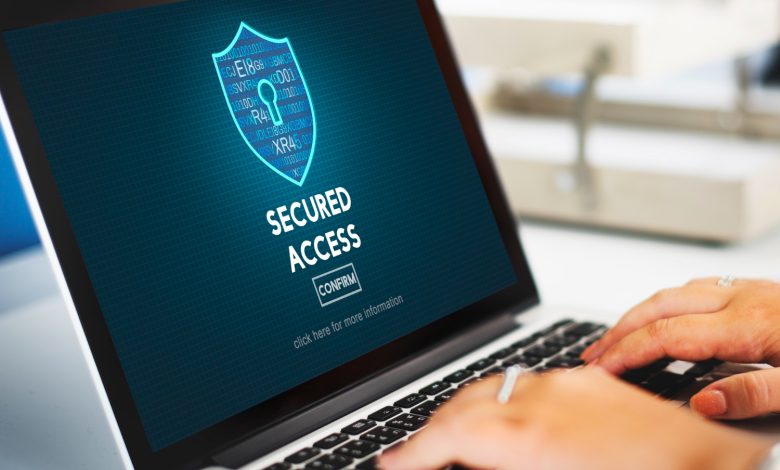From Protectors to Protected: Safeguarding Our Parents’ Cyber World this Global Day of Parents

by Darren Guccione, CEO and Co-Founder, Keeper Security
 Whether it is restarting the router to get their WiFi to connect or closing 20 open browser tabs to speed up their phones, children have long been performing simple tech jobs for their parents and caregivers.
Whether it is restarting the router to get their WiFi to connect or closing 20 open browser tabs to speed up their phones, children have long been performing simple tech jobs for their parents and caregivers.
According to Singapore’s Infocomm Media Development Authority, smartphone ownership in seniors has ballooned to 89% in 2022, with 78% turning to online payments for day-to-day transactions. As technology rapidly progresses, sometimes digital safety goes beyond the simple. Embracing technology is one thing, but staying digitally safe is another, and bad actors are enjoying the increased opportunities to hack, phish and scam seniors who may be relaxed in their online safety practices.
Bad Online Habits Increase Risk
According to a survey conducted in 2020 by the Cyber Security Agency (CSA) of Singapore, seniors exhibited lower levels of awareness and implementation of protective measures against scams. CSA’s findings were backed up by Keeper Security’s 2022 Password Practices Report, where 34% of respondents ages 65 and up reported that they do not use a passcode to lock and unlock their phone.
Without even the simplest security procedures such as a passcode to lock their phones, seniors are likely lacking more robust security measures, including strong and unique passwords for every account and the activation of Two-Factor Authentication (2FA) — increasing the risk of bad threat actors attacking this demographic.
These findings were also supported by a significant surge in financial losses among seniors in Singapore, rising from S$4,700 in 2017 to S$88,000 in 2018. Earlier in 2024, an elderly man was targeted thrice by scammers, where he almost lost a total of S$3.7 million.
Caring for another’s digital security is no easy task and monitoring every click is simply not possible.
A Complex Problem Calls for A Simple Solution
From impersonating government officials to unauthorised third-party malware infiltrations, it is difficult for anyone to stay up to date on the latest evolving methods and attack vectors cyber scammers are using to worm their way into our lives.
Despite people of all ages falling prey to scammers and their schemes, senior victims tend to lose more money to digital fraud.
Before spending a weekend explaining the dangers of poor digital habits with your parents, start by exploring one specific habit that increases online vulnerability — a well-guarded password — a step forward towards improving cybersecurity.
The Protective Power of Well-Guarded Passwords
Keeper Security’s 2022 US Password Practices Report revealed that almost half of the respondents had been hacked at least once. The report also showed over half of respondents have overwhelmingly negligent attitudes toward password protection, in which passwords are being shared with spouses, written down on paper and forgotten over 40 times per year, all increasing the risk of a security breach.
On average, those ages 65 and over forget their password 63 times a year, compared to respondents aged 18-24 who forget theirs 50 times a year. Why is that a problem? How can something as small as forgetting the name of a childhood pet leave the elderly population vulnerable to such huge losses?
This phenomenon is called password fatigue. Essentially, the more we have to change our passwords, the more likely we are to choose passwords that are easy to remember or reuse from another platform. In fact, 56% of respondents admitted to using the same password across different sites/apps, leaving scammers ample opportunity to exploit these weaker passwords and gain access to sensitive personal information.
While just under a quarter (24%) of 18–24-year-olds keep track of their passwords by physically writing them down, over half (53%) of respondents aged 65+ rely on this old-school method of password protection.
Additionally, online scamming can begin with real-world opportunities. It’s only a matter of time until someone with questionable intentions takes advantage of those passwords left right out in the open.
Keeping Passwords Safe, All in One Place
A digital password manager is essentially a logbook that lives online. With the aid of just a single master password, users can easily access the passwords to all of their various accounts. To aid with curating strong passwords, some of these managers come with password protectors that automatically assess password strength. The best ones also generate strong, unique passwords for every account. With the help of a password manager, your parents won’t just benefit from better passwords, but also won’t have to worry about remembering them.
Many password managers offer a safe way to auto-fill user logins, as well as the ability to add credit and debit cards for faster and more secure online shopping checkouts. The “custom fields” option is also a huge help when it comes to remembering key information: it allows users to securely save important information, including a driver’s license or passport, sensitive files, documents, and even photos and videos. In using a trusted password manager, all credentials, secrets and other customer data are only accessible by the end user. All encryption and decryption are done on the fly on your parents’ device, and the data is encrypted both in transit and at rest on the manager’s infrastructure (AES-256).
Remember, a world-class password manager will make it easier to protect and secure your loved ones online – not more complicated.




